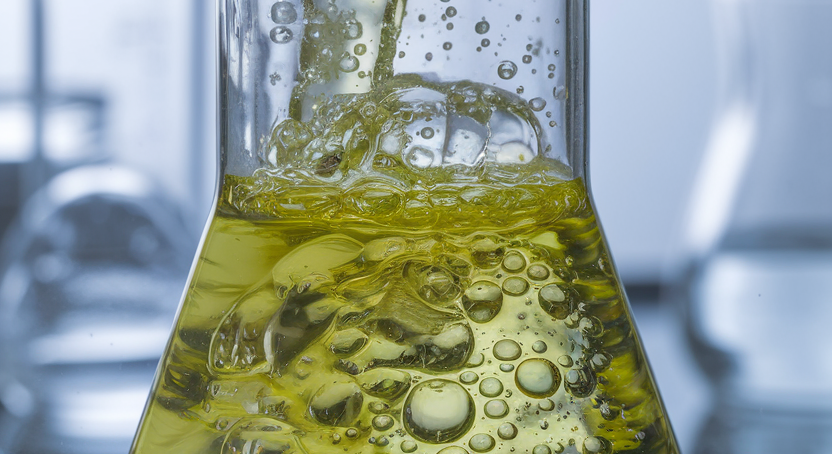Sulfates in Personal Care: Effective Cleanser or Skin Irritant?
By:
Kevin Chong
On
31/10/2024Reading time:
5 min
Summary:
Sulfates are a common ingredient in many personal care products, including shampoos, body washes, and facial cleansers. They’re known for their ability to create a rich lather and effectively remove dirt and oil from the skin and hair. However, despite their effectiveness, sulfates have become a topic of controversy, particularly for individuals with sensitive, dry, or eczema-prone skin.
In this blog, we’ll explore what sulfates are, how they work in personal care products, and why they may not be suitable for everyone. We’ll also offer tips on how to make informed decisions when choosing sulfate-containing products.

What Are Sulfates?
Sulfates are a group of cleansing agents, or surfactants, that are commonly used in personal care products. They are responsible for creating that satisfying lather that makes you feel clean and refreshed. The most common sulfates used in skincare and haircare products are:
Sodium Lauryl Sulfate (SLS)
Sodium Laureth Sulfate (SLES)
Ammonium Lauryl Sulfate
Ammonium Laureth Sulfate
MIPA Laureth Sulfate
TIPA Laureth Sulfate
These compounds work by breaking down oils and dirt on the skin and hair, allowing them to be easily rinsed away with water. Because of their strong cleansing abilities, sulfates are widely used in products like shampoos, body washes, and facial cleansers.
Benefits of Sulfates in Personal Care
Sulfates have long been a staple in the personal care industry for their cleansing power and lathering abilities. Here are some of the key reasons why sulfates are commonly used:
1. Effective Cleansing:
Sulfates are highly effective at removing dirt, oil, and product buildup from the skin and hair. They work by breaking down the oils and lifting away impurities, leaving you feeling thoroughly clean. For individuals with oily skin or scalp, sulfates can help control excess oil production, making them a good choice for daily cleansing.
2. Rich Lather:
One of the main reasons people love sulfate-containing products is the lather they create. Sulfates produce a rich, foamy lather that feels luxurious and enhances the cleansing experience. This is particularly appealing in shampoos and body washes, where the sensory aspect of cleansing is important to many users.
3. Affordable and Readily Available:
Sulfates are inexpensive to produce, which makes sulfate-containing products more affordable for consumers. They are also widely available in most personal care products, making them a go-to option for many people.
The Downsides: Why Sulfates May Not Be Suitable for Everyone
While sulfates are effective cleansing agents, they are not suitable for everyone—especially those with sensitive skin, dry skin, or eczema-prone skin. Here’s why sulfates can cause issues for some individuals:
1. Skin Irritation:
Sulfates, particularly Sodium Lauryl Sulfate (SLS), can be harsh on the skin and may cause irritation, especially when used in high concentrations or over extended periods. For individuals with sensitive skin, sulfates can lead to redness, itching, and discomfort, making them unsuitable for daily use.
2. Dryness:
Because sulfates are such strong cleansers, they can strip the skin and hair of their natural oils, leading to dryness. This can be problematic for people with dry skin or a compromised moisture barrier, as it can leave the skin feeling tight, flaky, and uncomfortable.
3. Exacerbating Eczema:
People with eczema have a compromised skin barrier, which means they are more prone to irritation and sensitivity. Sulfates can further weaken the skin’s barrier function, exacerbating eczema flare-ups and causing increased dryness and inflammation.
4. Disrupting the Skin Barrier:
The skin’s natural barrier is essential for retaining moisture and protecting against external irritants. Sulfates, when used in high concentrations or on already compromised skin, can disrupt this barrier, leading to increased trans-epidermal water loss (TEWL) and a greater risk of irritation and sensitivity.
Should You Avoid Sulfates in Personal Care Products?
Whether or not you should avoid sulfates depends on your skin type, hair type, and personal preferences. Here are some factors to consider when deciding if sulfates are right for you:
Sensitive or Eczema-Prone Skin: If you have sensitive or eczema-prone skin, it’s best to avoid products with sulfates or opt for sulfate-free formulas. These alternatives are gentler on the skin and less likely to cause irritation or dryness.
Dry Skin or Hair: If you have dry skin or hair, sulfates may exacerbate your condition by stripping away essential oils. In this case, you may benefit from sulfate-free cleansers or shampoos that focus on hydrating and nourishing the skin and scalp.
Oily Skin or Scalp: For those with oily skin or scalp, sulfates can be an effective way to control excess oil production. However, it’s still important to monitor your skin’s response and consider alternating with gentler cleansers to prevent over-drying.
Daily Use: If you’re using a sulfate-containing product every day, consider how it’s affecting your skin or hair. If you notice increased dryness, tightness, or irritation, switching to a gentler, sulfate-free option may be beneficial.
Sulfate-Free Alternatives
For those who prefer to avoid sulfates, there are many sulfate-free alternatives that offer gentle yet effective cleansing. Look for products that use mild surfactants like:
Cocamidopropyl Betaine
Soapberry Extract
Glycolipids
These ingredients provide a gentle cleansing experience without stripping the skin or hair of their natural moisture, making them ideal for sensitive skin and dry hair.
If you’re concerned about the potential downsides of sulfates, switching to a sulfate-free formula may help keep your skin and hair healthy, hydrated, and irritation-free. Ultimately, the decision comes down to your individual skin type and how your skin responds to sulfate-containing products.
Sulfates are undeniably effective cleansing agents that provide deep cleaning and a luxurious lather, making them a popular choice in personal care products. However, for individuals with sensitive, dry, or eczema-prone skin, sulfates may do more harm than good by causing irritation, dryness, and disrupting the skin’s natural barrier.
